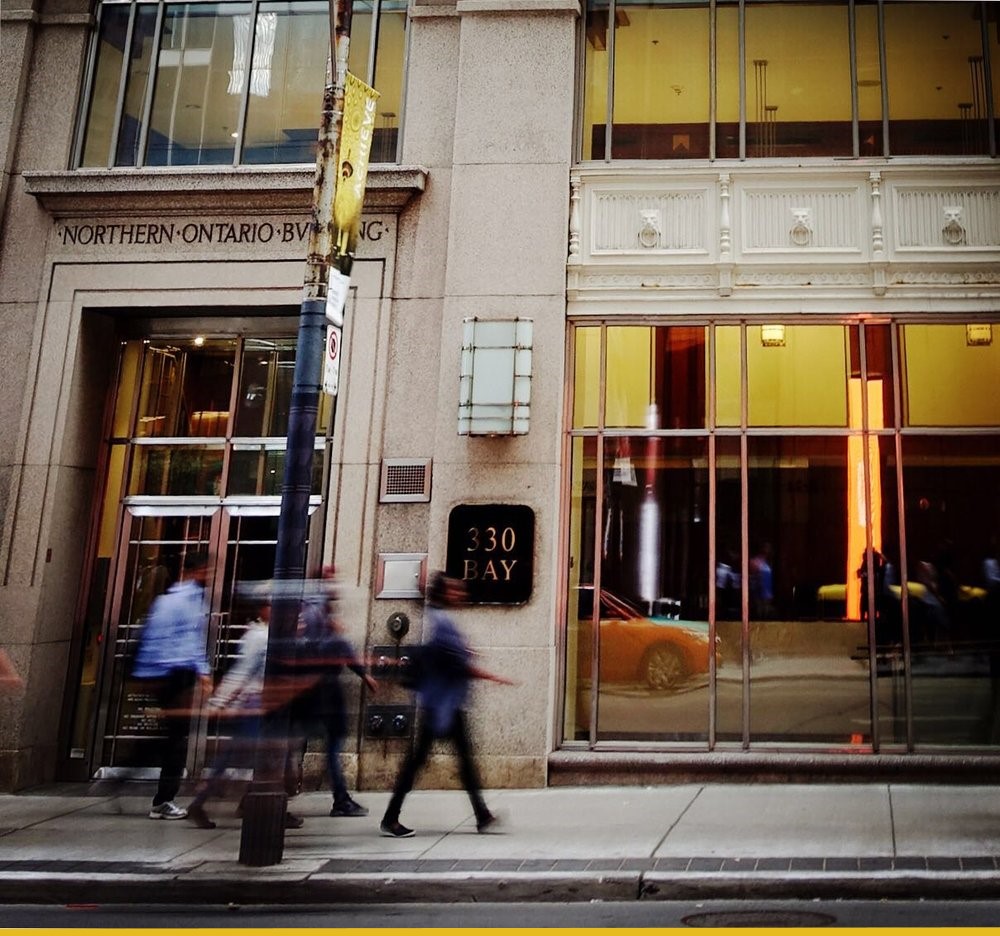Why Choose Our Law Firm
-
5,000 +
hearings, trials &
arbitrations completed -
$10 million +
In judgements obtained
And enforced -
50 +
Combined years
Of experience -
Unrivalled
expertise in high-value
high-stakes litigation
Commercial and Civil Litigation
Lawyer in Toronto

-
civil and commercial
litigation law -
Regulatory Compliance
and Defence -
professional regulation and
discipline law
-
Breach of contract
law -
Commercial Lease
Dispute Law -
Condominium Litigation
Law -
public
and administrative law -
criminal
defence law -
cannabis
law
-
Toronto Civil and Commercial
Litigation LawyersContract disputes can be stressful and costly, so getting the right advice is essential. At Chand & Co., we offer a formidable team of knowledgeable lawyers with expertise in high-value, high-stakes litigation. We are tenacious, creative and pragmatic, working to protect and advance your interests while attaining the outcome you require even in the most demanding, complex cases. Whether you are a plaintiff or a defendant, we are able to anticipate your needs and will work tirelessly to ensure your success. Our extensive experience as litigators sets us apart from other law firms and allows us to forecast how a case will end up if it goes to courtroom and, in many cases, arbitration might offer the most expedient and prudent path to resolving a legal dispute. However, we do some of our finest work at trial so when the need arises, we are ready to fight on your behalf. At Chand & Co., you can be confident that we will do our utmost to ensure the litigation process is as smooth and favorable for you as possible.- Debt Collection Lawyer Guelph
- Debt Collection Lawyer Kitchener
- Debt Collection Lawyer Ottawa
- Appellate Litigation Lawyer
- Franchise Litigation Lawyer
- Arbitration Lawyer
- Debt Collection Lawyer
- Breach of Contract Lawyer
- Condominium Litigation Lawyer
- Real Estate Litigation Lawyer
- Commercial Lease Dispute Lawyer
- Shareholder and Partnership Dispute Lawyer
-
Toronto Regulatory Compliance &
Defence LawyerOur regulatory compliance and defence clients include businesses and institutions, private individuals, and regulated professionals.- Funeral Home and Funeral Professional Lawyer
- Long Term Care and Retirement Homes Lawyer
- Motor Vehicle Dealers Act Lawyer for Salespersons and Dealers
- Consumer Protection Act Lawyer for Corporations and Businesses
- Liquor Licence and Gaming Lawyer
- Municipal Licensing and Compliance Lawyer
- Occupational Health and Safety Act Lawyer
- Tarion Warranty Corporation Lawyer for Builders and Developers
- Environmental Protection Act Lawyer
- Ontario College of Trades and Apprenticeship Act Lawyer
- Electricity Act and Electrician Lawyer
- Competition Act Lawyer
-
Toronto Professional Regulation and
Discipline LawyerWe regularly represent professionals in connection with complaints, investigations, and disciplinary proceedings commenced against them by regulatory bodies or under the legislation.- Police Officer Lawyer
- Lawyer for Lawyers
- Real Estate Professional Lawyer
- Sport and Professional Athlete Lawyer
- Mortgage Agents and Brokers Lawyer
- Motor Vehicle Dealers Act Lawyer for Salespersons and Dealers
- Chartered Professional Accountants Lawyer
- Nurses and Nurse Complaints Lawyer
- Healthcare Professional Lawyer
-
Toronto Breach of Contract Lawer
Ideally, contracts are designed to serve the best interest of all parties involved but they are not all created equally. Agreements are not always clear and the terms can be complicated, which is why knowledgeable counsel is essential to ensure your rights are protected. -
Toronto Commercial Lease Dispute Lawyer
Our commercial lease dispute lawyers at Chand & Co. possess a diversity of experience to guide you through the process. We can review your lease to identify the applicable legal issue to help you develop a sound strategy to resolve it, which may include alternative dispute resolution. Remember, we are at your side, ready to litigate on your behalf. -
Toronto Condominium Litigation Lawyer
At Chand & Co., we have gained insight from years of experience, and we can cut through the complex issues, whether at the development phase or the ownership stage. We will work tirelessly to find the most appropriate and cost-effective solution. -
Toronto Public & Administrative
LawyerOur public and administrative law practice deals with representing clients before administrative tribunals and guiding our clients through investigations initiated by the government and regulators. -
Toronto Criminal Defence
LawyerWe represent individuals accused of any offence under the Criminal Code before the Ontario Court of Justice and the Superior Court of Justice in Ontario. -
Toronto Cannabis
LawyerWe have assisted thousands of businesses and business owners across Ontario with issues related to licensing of cannabis and regulatory compliance.

Practice Areas
-
civil and commercial
litigation law- Debt Collection Lawyer Guelph
- Debt Collection Lawyer Kitchener
- Debt Collection Lawyer Ottawa
- Appellate Litigation Lawyer
- Franchise Litigation Lawyer
- Arbitration Lawyer
- Debt Collection Lawyer
- Breach of Contract Lawyer
- Condominium Litigation Lawyer
- Real Estate Litigation Lawyer
- Commercial Lease Dispute Lawyer
- Shareholder and Partnership Dispute Lawyer
-
- Funeral Home and Funeral Professional Lawyer
- Long Term Care and Retirement Homes Lawyer
- Motor Vehicle Dealers Act Lawyer for Salespersons and Dealers
- Consumer Protection Act Lawyer for Corporations and Businesses
- Liquor Licence and Gaming Lawyer
- Municipal Licensing and Compliance Lawyer
- Occupational Health and Safety Act Lawyer
- Tarion Warranty Corporation Lawyer for Builders and Developers
- Environmental Protection Act Lawyer
- Ontario College of Trades and Apprenticeship Act Lawyer
- Electricity Act and Electrician Lawyer
- Competition Act Lawyer
-
- Police Officer Lawyer
- Lawyer for Lawyers
- Real Estate Professional Lawyer
- Sport and Professional Athlete Lawyer
- Mortgage Agents and Brokers Lawyer
- Motor Vehicle Dealers Act Lawyer for Salespersons and Dealers
- Chartered Professional Accountants Lawyer
- Nurses and Nurse Complaints Lawyer
- Healthcare Professional Lawyer
-
The Chand & Co. Law Firm Advantage
From the boardroom to the courtroom, from administrative and regulatory tribunals to the Superior Court,
our clients trust us to navigate complex litigation disputes and deliver results.
-
TRUST
Our clients entrust us with their most complex legal disputes when the stakes are at their highest and the outcome is of vital importance. We treat our client’s needs as if they are our own and stand beside them in their time of need. -
TRACK RECORD
When you hire our team, you choose an accomplished and respected litigation law firm with a proven track record of success that will have your best interests in mind. We pride ourselves in delivering unparalleled legal representation and professional excellence to our clients. -
UNRIVALLED SERVICE
We take pride in providing exceptional personal and professional representation. Unlike many other firms, we are available around the clock to protect, defend, and advance your interests.
Stages of the Civil Litigation Process In the Ontario Superior Court of Justice
1. Commencing a Claim
If a person wishes to sue for $35,000.00 or less, the proper place to start a legal action is in the Ontario Small Claims Court. For claims that are over $35,000.00, the claim must be commenced in the Ontario Superior Court of Justice. The information described in this document is for actions started in the Superior Court of Justice and for claims that are over the $35,000.00 threshold.
The plaintiff is the party that is suing another person or business. In order to commence a lawsuit in Ontario, the plaintiff must prepare a statement of claim detailing the amount they are suing for along with a concise statement of material facts they intend to rely on in court. Once the statement of claim is prepared and the required filing fee is paid to the Minister of Finance, the court will have the statement of claim issued.
If the claim amount is $200,000.00 or less, the claim is commenced under Rule 76 of the Rules of Civil Procedure, this process is known as simplified procedure. If the claim is over $200,000.00, it would need to be started under the ordinary rules. There are situations where the parties can agree to use the simplified procedure for claims that are over $200,000.00.
Once the statement of claim is issued with the court, the plaintiff must serve the claim on all of the named defendants and file an affidavit of service with the court.
2. Defending a Claim
If the defendant intends to defend an action that has been commenced against them, they must prepare a statement of defence and have it served on the plaintiff and all other parties in accordance with the Rules of Civil Procedure. A filing fee is required, and the defendant will have to prepare an affidavit of service indicating that the defence has been served on the other parties.
At this stage, the defendant may also commence a counterclaim against the plaintiff, a cross-claim against a co-defendant, or make a 3rd party claim against another party not yet named in the litigation.
If the defendant does not defend the action within the 20-days of being served with the statement of claim, the plaintiff may have the defendant noted in default for failing to file a defence within the prescribed time according to the Rules of Civil Procedure. Once a party has been noted in default, they are no longer permitted to file a defence without first obtaining the consent of the plaintiff or by bringing a motion for an order allowing them to file a defence. They are also deemed to have admitted all of the allegations contained in the statement of claim, leaving the plaintiff free to seek a default judgment against them.
3. Discovery Stage
If you wish to obtain evidence using discovery, the parties will have to agree on a discovery plan. This stage allows for the exchange of evidence through the discovery process. As of January 1, 2010, the parties are required to agree on a discovery plan within 60-days after the close of pleadings and prior to any other attempts to obtain evidence.
An affidavit of documents must be served on all of the other parties involved in an action that lists all of the documents a party has in its possession or control. Either party may serve a notice of examination on an opposing party that will indicate the time and place where they must attend to answer questions under oath. These examinations are recorded and transcribed. This transcript can later be used at a trial to challenge the evidence that has been presented. The maximum time limit to examine another party is 7 hours. This time limit applies regardless of the number of persons to be examined.
At the examination date, you must bring with you all the documents that have been listed in your affidavit of documents that are not privileged.
4. Mediation
Mediation allows for the parties to settle a lawsuit outside the court. A key distinction between a mediator and a judge is that a mediator does not decide cases or impose settlements on the parties. Mediation can often save the parties both time and money.
Under rule 24.1 of the Rules of Civil Procedure, if a civil action has been commenced in Toronto, Ottawa or Windsor, the parties are subject to mandatory mediation. This takes place 180 days after the first defence has been filed and the location is usually one that is convenient and acceptable to the parties. Prior to conducting a mediation, each party will create a mediation brief, and have it served on the other parties as well as the mediator.
The mediation brief will detail the legal issues in dispute and will give an opportunity for the parties to elaborate on their positions. A mediator serves as a neutral party whose primary goal is to support an active dialogue and help the parties resolve their issues. All discussions in a mediation are kept confidential, including any settlement offers that are made during the mediation.
If the mediation does not produce results, the parties may request to have a further mediation or begin the process of preparing for a trial.
5. Setting down for Trial
The serving and filing of a trial record signify a party setting down an action for trial. The trial record will include all orders and pleadings to date. The registrar places the action on a trial list and the parties may have to attend assignment court in order to pick dates of when they will be available to attend trial.
6. Pre-trial Conference
A pre-trial must be held prior to a trial. At this stage, the parties appear before a judge in an attempt to narrow down the issues for trial. The parties have an open dialogue with one another to determine whether their issues can be resolved prior to a trial.
You want to ensure that all outstanding disclosure issues have been resolved and both parties are prepared and have all the evidence they need and intend to rely upon at trial. The parties should have a good grasp of what their strengths and weaknesses are and should be prepared to negotiate and work towards a settlement.
7. The Trial
If the parties cannot resolve their issues or come to a settlement at the pre-trial conference, a trial will be necessary. At trial, the plaintiff and defendant may choose to make opening statements and are provided with an opportunity to introduce to the judge or jury their case. The opening statement is when the parties explain what they will be trying to prove throughout the trial.
Each party will present their evidence by calling witnesses and entering documents as exhibits. The plaintiff’s witnesses are called first to testify and are examined and then will be cross-examined by the other party. After the plaintiff is finished calling their witnesses, the defence will have an opportunity to call theirs. At the conclusion of a trial and once both parties have called all of their witnesses, both the plaintiff and defendant have an opportunity to make closing submissions.
Once the parties have completed their closing submissions, the judge may give a judgment in court. This is not always the case and there are times when the judge may reserve his decision and provide the judgment at a later date.
Contact Chand & Co. law firm at 416-583-2377 and our lawyers will be more than happy to guide you through the trial process and provide expert representation every step of the way.
case evaluation


Our Reviews
We are proud to have helped many clients with their legal needs with our personalized and attentive service. We are grateful that our clients endorse us heartily and without reservation. See some testimonials of what some of our valued clients are saying about us:













